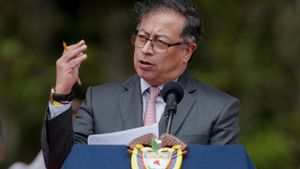AUSTIN – Texas Governor Greg Abbott has taken another significant step to protect the state’s infrastructure from foreign interference by issuing a ban on artificial intelligence (AI) and social media applications affiliated with the People’s Republic of China (PRC) and the Chinese Communist Party (CCP). This directive was announced on Friday and applies to all government-issued devices.
Governor Abbott emphasized the necessity of this action, stating, "Texas will not allow the Chinese Communist Party to infiltrate our state’scritical infrastructure through data-harvesting AI and social media apps." He instructed Texas state agencies to enforce the ban on Chinese government-based AI and social media applications on state-issued devices, arguing it’s imperative to safeguard sensitive areas such as intellectual property, personal information, and other assets from potential espionage.
To enforce this ban, Abbott has mandated the Texas Department of Public Safety (DPS) and the Department of Information Resources to expand the prohibited technologies list, which now includes six specific applications: RedNote, DeepSeek, Webull, Tiger Brokers, Moomoo, and Lemon8. This means state employees and contractors are now restricted from downloading or using these applications on both state-owned and personal devices used for work.
Governor Abbott's latest action follows prior directives he issued about two months earlier, where he instructed all state agencies to bolster defenses against the growing threats posed by the CCP. These measures included:
1. Directing state agencies and public higher education institutions to strengthen systems and protect infrastructure.
2. Directing DPS to engage actively against any individuals involved in CCP influence operations, particularly operations like 'Operation Fox Hunt,' aimed at extraditing dissenters from the U.S. to China.
3. Directing the Texas Division of Emergency Management and the Public Utility Commission of Texas to prepare against potential threats to Texas's infrastructure.
4. Mandated divestments from Chinese-origin investments.
These measures also extend to previous actions Abbott undertook last year, where he banned TikTok from being used on government devices, emphasizing the risks posed by the platform due to its Chinese ownership.
The legislative backdrop is also notable; in 2023, the Texas Legislature passed and Abbott signed Senate Bill 1893, which targeted TikTok and similar applications, reinforcing the grip on digital security protocols within Texas state agencies. Abbott's consistent stance reflects the increasing bipartisan awareness surrounding issues of surveillance and data security affiliated with foreign technology.
Last year’s federal legislation, the Protecting Americans from Foreign Adversary Controlled Applications Act, introduced new restrictions on platforms like TikTok, mandatorily severing its U.S. operations from its Chinese parent company by January 19, 2025. Despite this, the law has faced legal challenges and scrutiny but remains upheld by the Supreme Court.
Under Biden’s administration, the risks associated with foreign applications have been met with heightened scrutiny, and extensive reports have linked apps like TikTok, RedNote, and Lemon8 to data privacy concerns for American users. The U.S. Department of Homeland Security has highlighted significant legal stipulations from the PRC’s national intelligence law, which requires companies based there to provide data upon request to state intelligence, reinforcing Abbott’s concerns.
Notably, RedNote and Lemon8 have risen as alternatives promoted by TikTok during its tumultuous period of potential shutdowns. Both applications, associated with PRC-based companies, collect user-generated content and data, which poses security threats according to Abbott’s assessment.
The directives come at a time when national security threats are increasingly prioritized at state and federal levels, aiming to protect citizens and sensitive infrastructure from foreign influence. Governor Abbott concludes, "Texas will continue to protect and defend our state from hostile foreign actors." The proactive measures taken highlight Texas’s stance on maintaining security and privacy for its residents against potential foreign espionage.
With numerous states and the federal government reevaluated policies on digital engagement with foreign-owned applications, Texas appears to be at the forefront of such legislative movements aimed at preserving national security and trustworthy governance.



